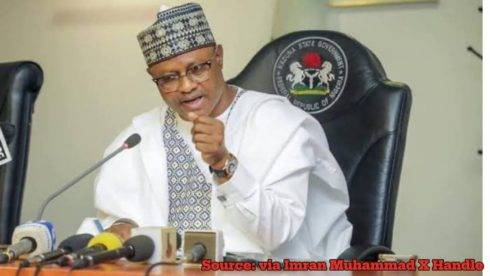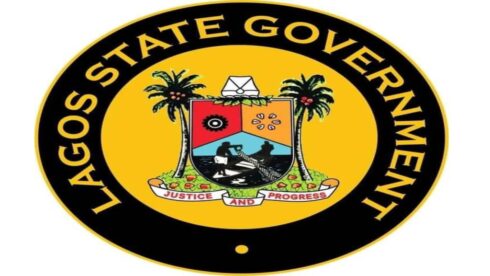Governor Uba Sani of Kaduna State has brought attention to a critical issue plaguing the state’s educational infrastructure. In a recent address to representatives from all 23 local government areas, the governor disclosed that over 1,500 schools in Kaduna lack adequate fencing, leaving them vulnerable to security threats. The urgency of addressing this issue was underscored by a recent kidnapping incident at Kuriga, where 137 children were abducted, shedding light on the vulnerability of unfenced school premises.
Governor Uba Sani emphasized the need for immediate action to secure these educational facilities, particularly junior secondary schools and primary schools, as part of the Safe School Initiative. The assessment conducted by the state government revealed a dire situation, necessitating swift intervention to ensure the safety and well-being of students and staff across the affected schools.
Governor Uba Sani: Implications for Student Safety and Learning Environment
The absence of proper fencing around schools poses significant risks to the safety and security of students and faculty members. Without adequate protection, educational institutions become easy targets for criminal activities such as trespassing, vandalism, and, as seen in the case of Kuriga, kidnapping. The lack of a secure perimeter not only compromises the physical safety of individuals within the premises but also disrupts the learning environment, leading to heightened anxiety and fear among students and educators.
Moreover, the prevalence of unfenced schools undermines efforts to promote education as a fundamental right and a pathway to empowerment. Students who attend schools with inadequate security measures may experience disruptions to their academic pursuits, hindering their overall educational attainment and future prospects. Addressing this issue is therefore crucial not only for safeguarding the immediate well-being of students but also for fostering a conducive learning environment conducive to growth and development.
Governor Uba Sani: Government Response and Safe School Initiative
Governor Uba Sani’s acknowledgment of the pressing need to fence schools in Kaduna reflects a proactive stance towards enhancing security and protecting the educational interests of the state’s youth. The commitment to implementing the Safe School Initiative underscores the government’s recognition of education as a priority sector requiring strategic investments and interventions. By prioritizing the security of school premises, the government aims to instill confidence in parents and stakeholders while ensuring that students can pursue their studies without fear or hindrance.
The proposed initiative is expected to involve comprehensive assessments, planning, and resource mobilization to address the fencing needs of over 1,500 schools identified as vulnerable. Collaborative efforts between government agencies, local authorities, community stakeholders, and relevant partners will be essential to expedite the implementation process and achieve meaningful results. Through a coordinated approach, the government seeks to create a safer educational environment that upholds the rights and dignity of all learners in Kaduna State.
Governor Uba Sani: Challenges and Constraints in Implementation
Despite the government’s commitment to enhancing school security, the implementation of the Safe School Initiative is likely to encounter various challenges and constraints. Chief among these is the allocation of adequate resources, including funding, materials, and manpower, to undertake the massive task of fencing over 1,500 schools across the state. Limited budgetary allocations and competing priorities may pose significant obstacles to the timely execution of the initiative, necessitating innovative financing mechanisms and partnerships to bridge the gap.
Additionally, logistical hurdles such as terrain variations, accessibility issues, and community dynamics could complicate the fencing process, requiring tailored solutions and local engagement strategies. Balancing the need for swift action with thorough planning and consultation will be critical to ensuring the effectiveness and sustainability of the initiative. Moreover, addressing underlying security threats and addressing root causes of insecurity in the broader community will be essential for creating a conducive environment for educational development.
Governor Uba Sani: Stakeholder Engagement and Community Involvement
The success of the Safe School Initiative hinges on active engagement and collaboration among various stakeholders, including government agencies, educational institutions, civil society organizations, parents, and local communities. Establishing channels for meaningful dialogue, consultation, and participation will be vital to garnering support, mobilizing resources, and fostering a sense of ownership and responsibility for school security. Community-based approaches that leverage local knowledge, expertise, and resources can enhance the relevance, effectiveness, and sustainability of security interventions.
Empowering communities to take ownership of school security measures not only strengthens the resilience of educational institutions but also fosters a culture of collective responsibility and solidarity. By fostering partnerships and building trust between government authorities and grassroots stakeholders, the Safe School Initiative can catalyze broader efforts to promote peace, stability, and social cohesion in Kaduna State. Through shared commitment and concerted action, stakeholders can work together to create safer, more inclusive learning environments that enable every child to thrive and realize their full potential.
Governor Uba Sani: Towards a Safer and Inclusive Education System
As Kaduna State embarks on the journey towards fencing over 1,500 schools to enhance security and protect the educational rights of its youth, it must prioritize a holistic approach that addresses the multifaceted dimensions of school safety and security. Beyond physical barriers, efforts should encompass measures to address underlying social, economic, and political factors contributing to insecurity and vulnerability. Investing in quality education, social services, youth empowerment, and community development can mitigate risks and build resilience against threats to educational institutions.
Furthermore, integrating principles of equity, inclusion, and diversity into education policies and practices is essential for creating a more just and inclusive education system that leaves no child behind. By promoting equal access to quality education and ensuring the protection of vulnerable populations, Kaduna State can advance its commitment to building a brighter future for all its citizens. Through sustained collaboration, innovation, and perseverance, stakeholders can overcome challenges and realize the vision of a safer, more resilient, and inclusive education system for generations to come.
Table of Contents
Discover more from OGM News NG
Subscribe to get the latest posts sent to your email.













